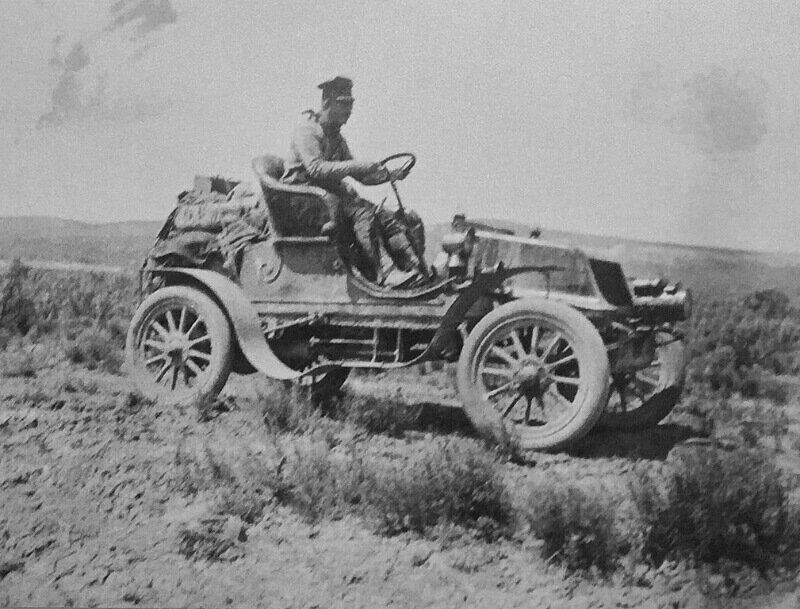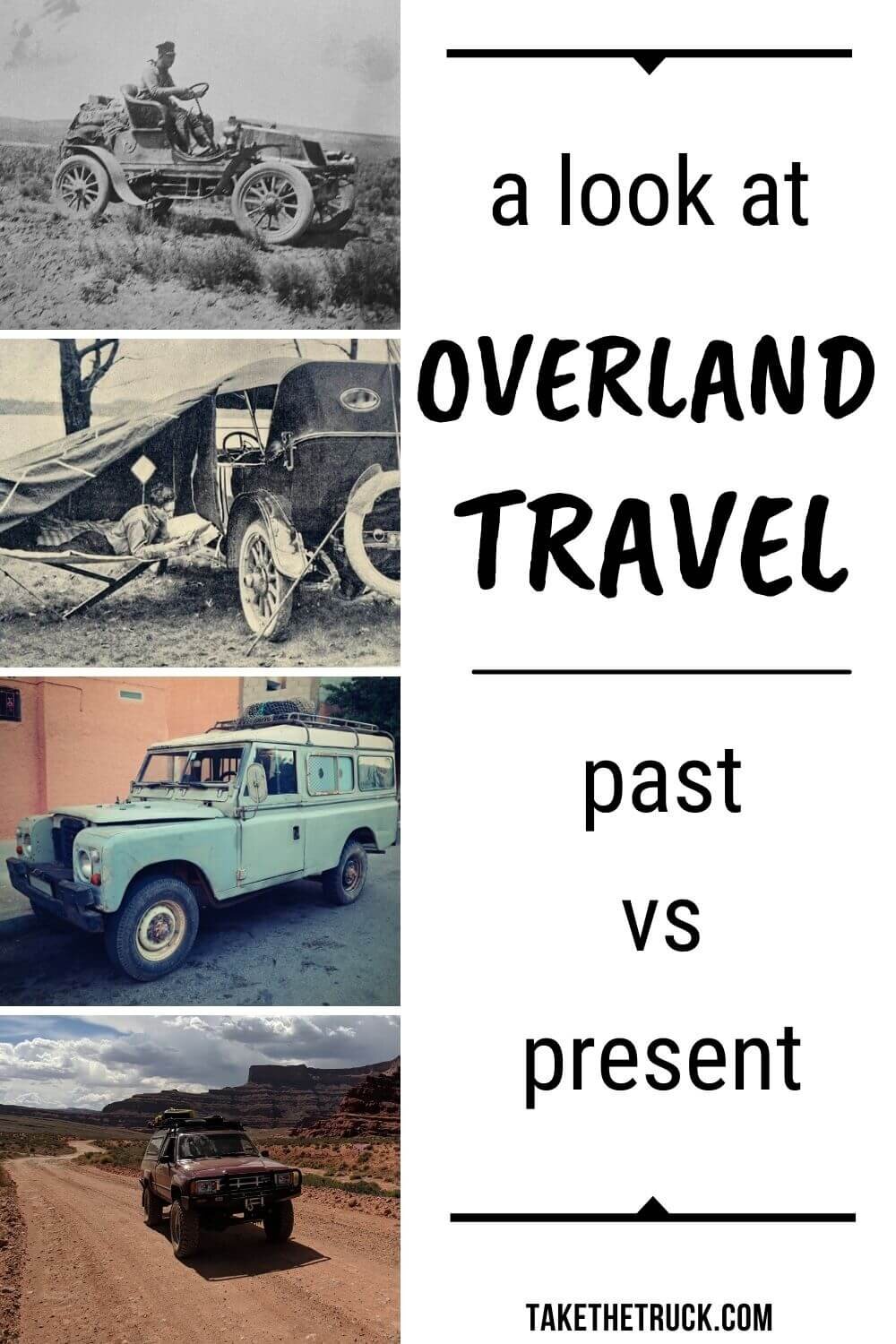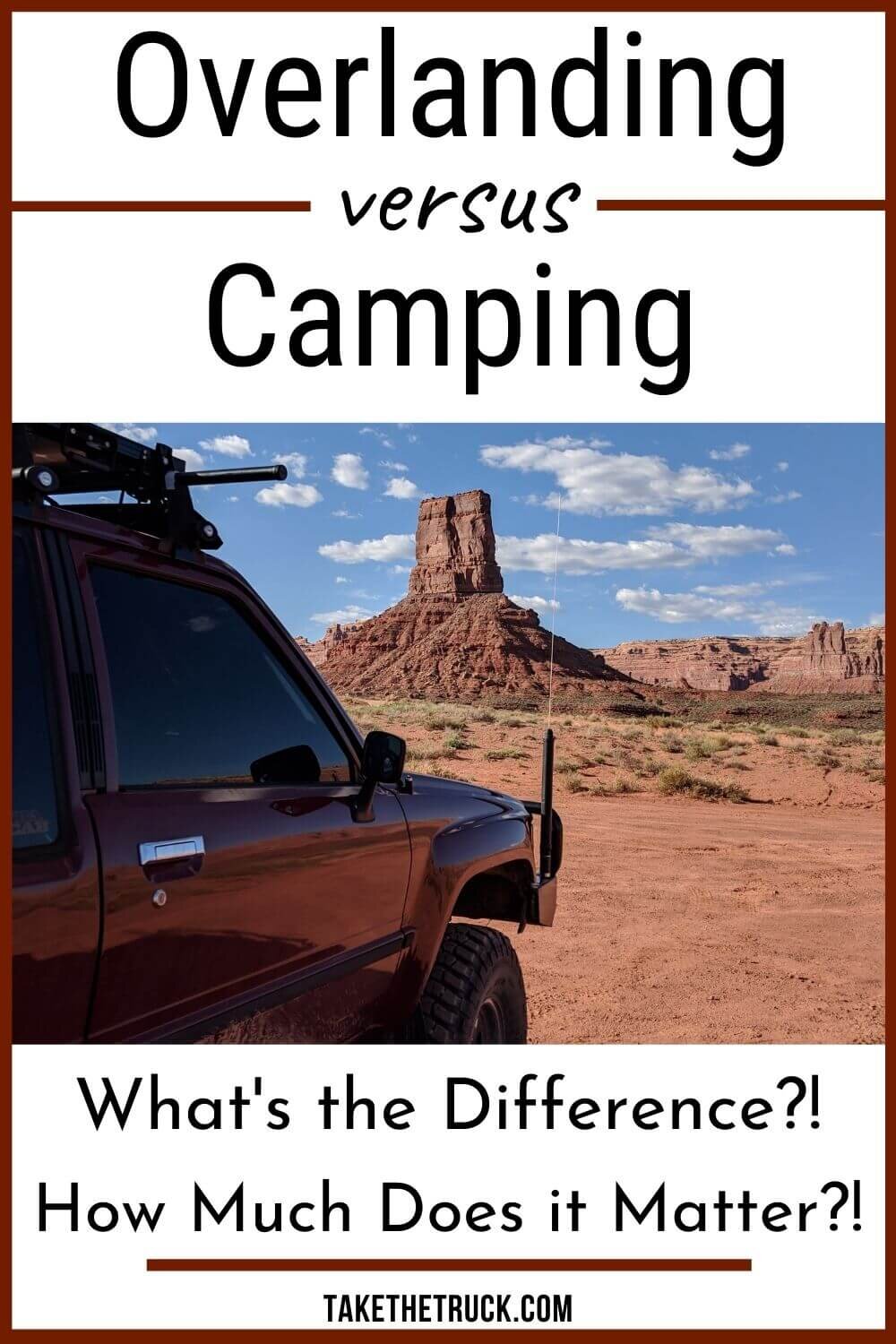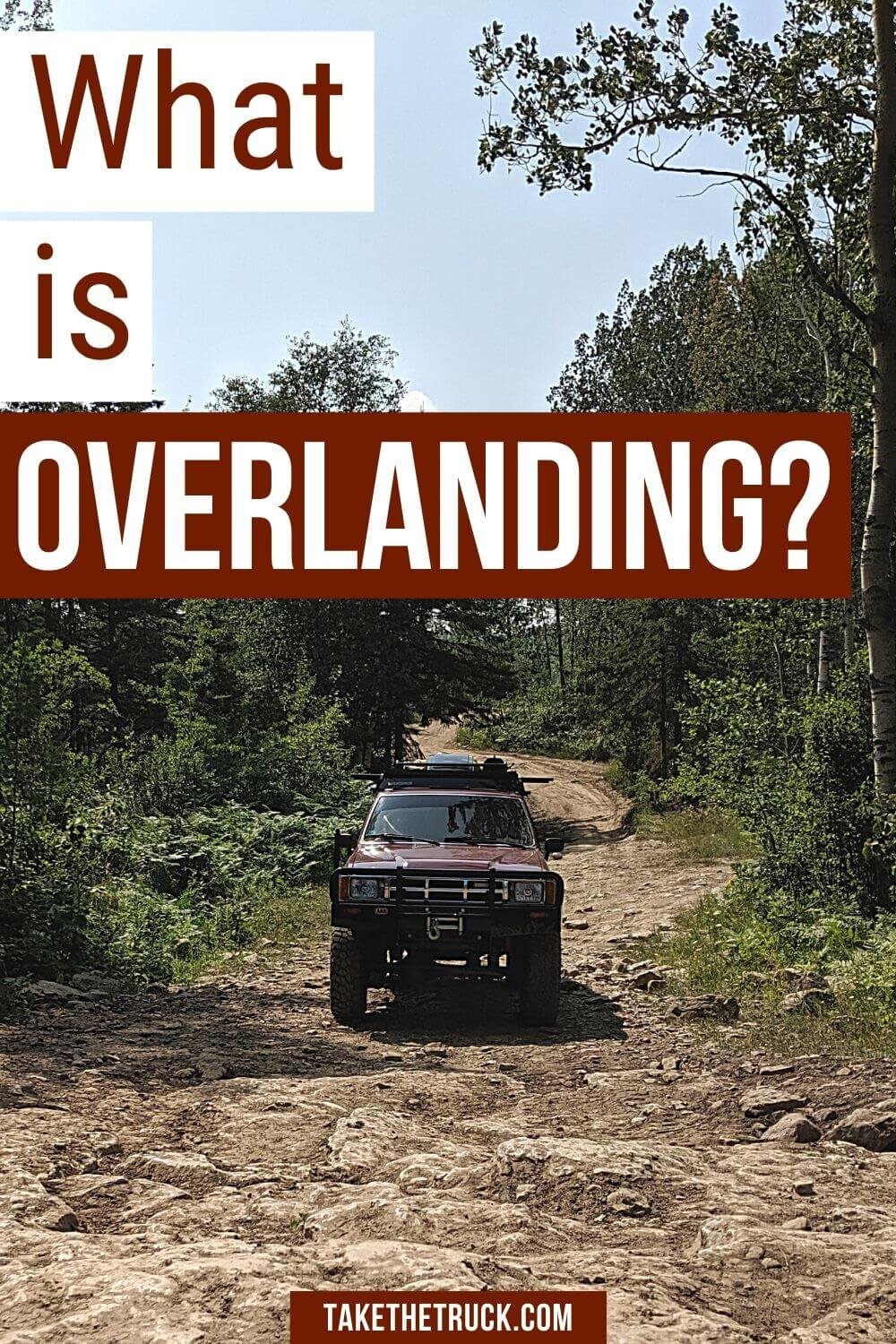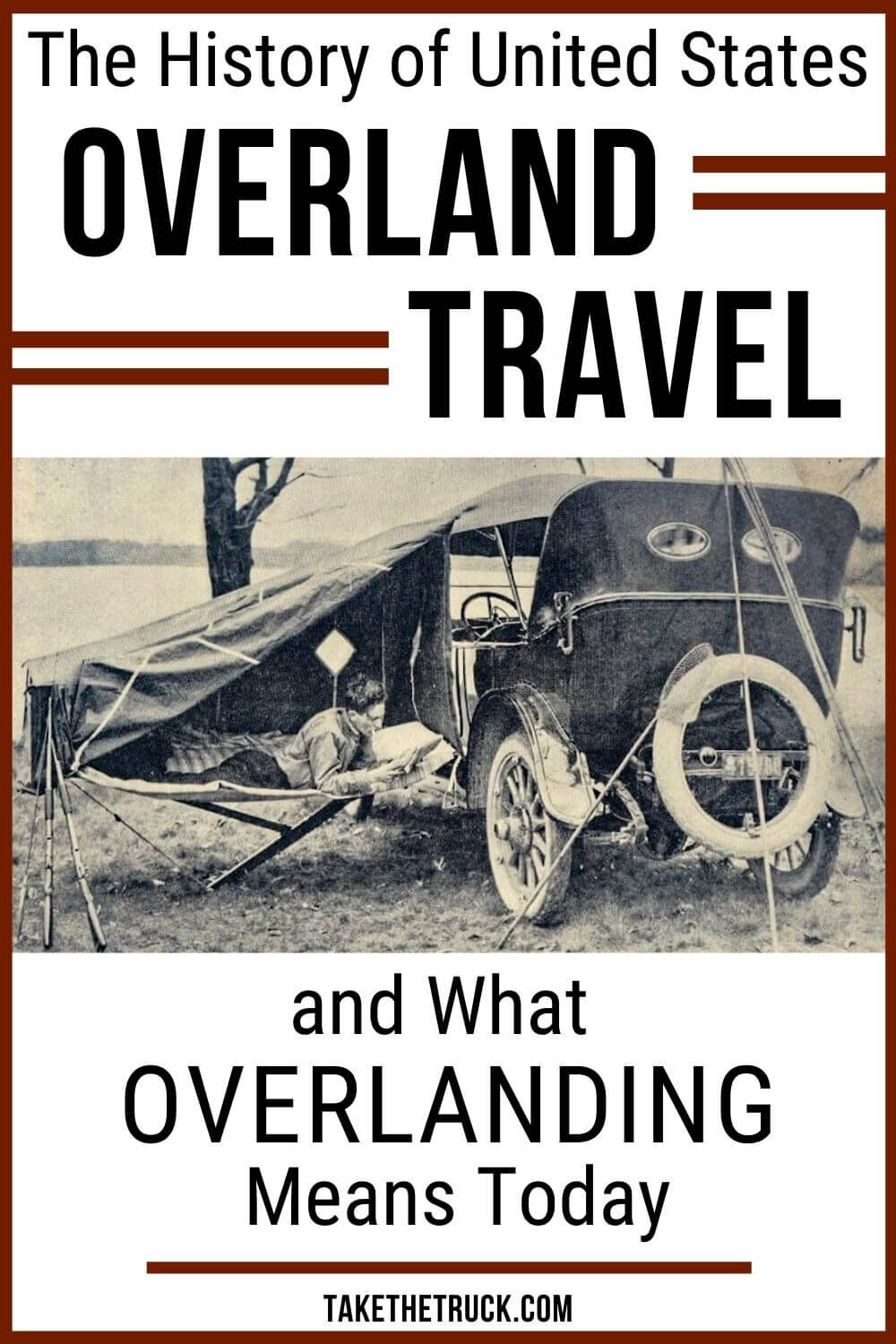What is Overlanding?
While the actual term “overlanding” found its origins with the cattle-drivers of the late 19th and early 20th century Australian outback, over the course of the last 100 years the concept of overlanding has evolved, and encompasses a wide array of mechanized on-road and off-road adventure travel.
Principally, overlanding is predicated by the experience of your journey and overland adventures, more so than the final destination. But to truly understand what overlanding is today, you first need to look back at what it has evolved from, and how that has impacted its current definition.
The History of Overlanding
Since the advent of the automobile, there have been people who have sought to utilize their vehicles as a means for exploration and adventure.
Though the term overlanding may not have been widely used, especially in the United States, until later in the 20th century, the concept of overlanding is anything but new.
Historic 1903 cross-country early overlanding journey of Horation Nelson Jackson from San Franciso to New York City
In the early 1900s “Motor Touring” was the term that nearest resembled what is now generally accepted to be overlanding. And as motor touring adventures, like Horatio Nelson Jackson’s 63 day motor tour from San Francisco to New York City in 1903, received more and more media coverage, the concept of overlanding began to take shape.
Overlanding (aka Motor Touring) in the 1920s.
In fact, one of our personal favorite “pre-overlanding” books, “Trail Craft: An Aid in Getting the Greatest Good Out of Vacation Trips” was written by Claude P. Fordyce and published in 1922!
It provides great insight into the popularization and amalgamation of motor touring with camping, travel, and adventure that would later evolve into overlanding.
This desire for mechanized adventure was further fueled during the close of WWII in the 1940s, as more and more off-road capable vehicles began being manufactured and marketed to consumers - first with the introduction of the Willys-Overland Jeep CJ series, followed closely by Toyota’s Landcruiser, the renowned Land Rover, and many many others.
While well documented overland expeditions - like the Sullivan C. Richardson Pan American Expedition in 1940, the famous Oxford and Cambridge Far Eastern Expedition in 1955, and events like the Camel Trophy in the 1980s and 1990s - further popularized the concept of overlanding and vehicle-based expeditions.
With the advent of the internet - increasing access to overlanding gear, aftermarket off-road vehicle equipment, and the free flow of overlanding information, story, and experience - the concept of overlanding has become an increasingly mainstream interest and alluring activity in these early years of the 21st century.
However, some still go so far as to argue that to truly consider your travel “overlanding”, you must set out in an expeditionary way across the borders of other countries.
And while in principle we could agree, the reality is that as the term overlanding has been brought into mainstream use throughout the world, the definition has become much more fluid.
the Difference Between Overlanding and Camping
This is a question that comes up A LOT when discussing and attempting to define overlanding, and it’s become very difficult - especially in the United States as overlanding has become more and more commercialized - to differentiate the two.
But here’s the thing: that’s actually really great for you and I!
Because now as more and more overlanding gear, equipment, and vehicle manufacturers appeal to a broader market, everyone reaps the benefits of easier access to better kit at generally lower prices - it’s a win-win for overlanding and camping alike!
However, at the end of the day, there are a few key differences between traditional vehicle camping and overlanding. We personally use the following factors as a sort of guideline or overlanding litmus test:
Trip Distance: How far will you be traveling?
Trip Duration: How long will you be traveling?
Destination: Where are you going?
Difficulty: How challenging is it to get there?
Generally for a trip to fall into the category of "overlanding" it would be:
Greater than 1,000 miles
Longer than 7 days
Outside of your typical geographic territory
Require some degree of exertion, self-sufficiency, and skill in navigating and driving
If you’re planning to go camping in your local state park or national forest for the weekend and you’re less than 100 miles from home, it would generally be considered a "camping" trip.
However, if you’re planning a journey with a mostly off-highway route that will take several weeks, cover a few thousand miles, spread over multiple states, provinces, or countries then most would consider your trip an overland adventure - at least in the true spirit of the word “overlanding.”
Surprisingly, there is a lot of heated debate over defining lines between the two, but a good analogy can be found when differentiating between “hiking" and "backpacking." Both are very different things and imply very different objectives and intent, just as "camping" and "overlanding" are very different things with very different objectives and intent.
And there is nothing wrong with either one - one is not intrinsically or extrinsically better than the other, and both have ultimately the same goal: to experience and enjoy this incredible world we all share.
How to Start Overlanding
Don’t get too hung up on the colloquialisms and parlance of the overlanding community, or worry whether you are or aren’t overlanding - just get out there and start your own adventure!
Because at the end of the day, that’s what it’s really all about: Your adventure!
And we’ve got a ton of ways to help get you started: check out our beginner’s guide for Everything You Need to Know to Start Overlanding, our Overlanding Page for tons of helpful tips and guides, our Overlanding Gear Page for all the gear we use on our personal family overland travels, and be sure to SUBSCRIBE for future blog updates.
As always, thanks for reading!
Related Links:
We’d love a share! Thanks!


